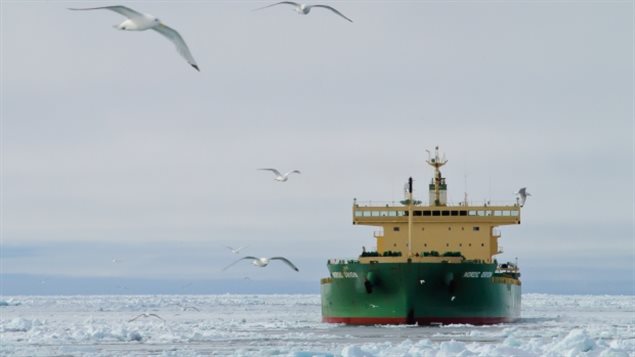It’s called the Polar Code and it’s been six years in the makin but a committee of the UN’s International Maritime Organization (IMO) completed work on environmental concerns just last week at a meeting in London, England.
The Polar Code covers ships operating in the Arctic and Antarctic and standards created late last year cover ship design, construction, equipment and training. This latest addition to the Code creates new environmental regulations ships must adhere to when operating in Arctic or Antarctic waters.
The environment code created by the IMO’s Marine Environmental Protection Committee (MEPC) basically rule against any kind of dumping in Polar regions.
The new rules say there can be no discharge into the sea of oil or oily mixtures from any ship. The environmental aspect also touches on an aspect of ship design, stating that oil fuel tanks must be separate from the outer hull.
Any noxious or toxic substance, or liquids containing toxic substances, as well as dumping of non-disinfected sewage, or garbage are also prohibited. Ground up food wastes may be discharged, but not onto ice, and only when 12 nautical miles from land.
The new more stringent ship design and operating standards for ships in polar waters apply to all new vessels constructed after January 1, 2017, and all ships built prior to that date must be upgraded by January 1 2018.
Environmental issues ommitted
While environmental groups applaud the new more stringent code, they say there is still much work that must be done.
On its website, Friends of the Earth point out that important aspects like graywater discharge, invasive species protection measures, and underwater noise regulations have not been dealt with.
There is also concern about the continued use of bunker fuel by ships, the lowest quality of fuel and the resultant soot emitted. The black soot emitted by ships, and diesel engines worldwide, has been shown to be an important contributor to ice melt.
There are much better technologies available for ship engines such as use of natural gas.
The code currently deals with large ships like cargo and bulk carriers, tankers, and cruise liners. Environmental NGO’s say the IMO should include fishing vessels, and all other specialized vessels, including yachts, that are increasingly entering polar waters.
John Kaltenstein, marine policy analyst at Friends of the Earth and participant in the IMO negotiations.
He says, “Increased shipping in the Arctic — which is experiencing the acute effects of climate change — threatens the region’s ecology, its residents and their traditional subsistence practices. The IMO must include measures that are precautionary, comprehensive and robust in order to truly protect the region from the impacts of shipping,”







For reasons beyond our control, and for an undetermined period of time, our comment section is now closed. However, our social networks remain open to your contributions.